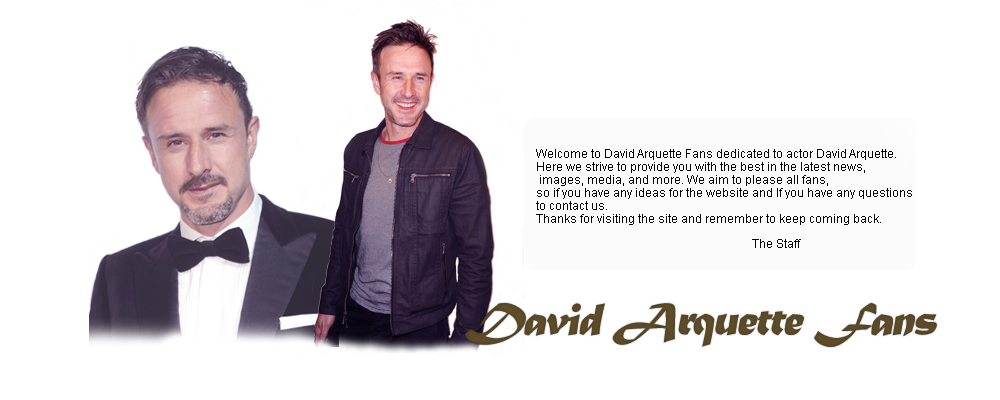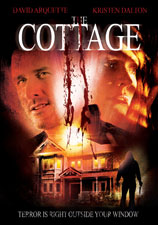"It had so much heart. It's different than most unscripted shows out there," Arquette tells The Hollywood Reporter.
The school has certified teachers as well as celebrities who come in to give lectures – all with the goal of getting the students back on track to graduate from high school.
Other notable instructors include Oliver Stone, 50 Cent Swizz Beatz, screenwriter Cliff Dorfman, and journalist Soledad O’Brien.
Arquette says he spent some of his teen years "running around and being a bit of a troublemaker," but was saved by getting involved in his school's drama department.
What did the producers of the show tell you to get you on board?
They told me it was Jamie Oliver. He's a great guy and I love what he's doing with food in schools. They showed me the original show they did in the U.K., and it had so much heart. It's different than most unscripted shows out there. It's about these cool kids who just need a little inspiration to stay on track and get back into their educations. I'm not typically who you think of to help guide your kids, so that meant a lot to me that they had that faith in me.
You talk about on the show how your school's drama department gave you focus as a teen. That was something you wanted to pass forward?
Absolutely. I was running around and being a bit of a troublemaker. Joining a school play gave me structure. I had to rehearse and stay after school, and then going home to doing my homework. It got me inspired. I did a comedic monologue for this big competition. I grew up with a family in the business – and I'd auditioned for four or five years and just got completely rejected. Then by doing the competition, I came in second place and it gave me another boost of confidence, and led to me getting my first job. I wanted to do something like that for these kids, to express to them that they are the most important people in their worlds. It's up to them to put in the time. If you put in the hard work you can achieve what you set your mind to and put your heart into.
You can probably relate to the kids because of your teenage years, as well.
I can relate them to in my life now. Hollywood is a crazy town. This business is complete rejection. I've been acting professionally for 24 years and it's still tough. And seeing other actors you've grown up with take off and others drop. It's a wild rollercoaster of a ride where you have to stay true to yourself and try to do good work. The last three movies I've been on had ultra low budgets, where it was like $100 a day. That's part of the business now. It's also part of staying active and trying – and even helping other people out, people who are doing their first or second movies, or people who have a vision but don't have much of a budget.
What was the hardest part of being on the show?
The hardest part was not having taught kids before. You have to be firm at points, but I never was a fan of teachers who talked down to kids.
What did drama instruction do for your students?
Mostly it was too build their confidence, and have them be able to stand up straight and talk to people and look people in the eye. Little things like that.
What part of Dream School did you enjoy the most?
The best part was seeing the kids come out of their shells. There was one kid named Eric, who's really smart. He's a DJ and he's really funny. But there was a part of his character that reminded me a lot of mine. He wasn't taking it seriously. I asked him to do a creative writing lesson where you use prose to express yourself. The first draft was all over the place and wasn't taking it seriously. We kind of called him on it. Then he came back, and he wrote one of the greatest poems of them all. It was great to see him step into it.
Ideally, what's next for Dream School? Did it change how you see educational problems in the U.S.?
It's sort of up to the audience to see if they're going to watch it to see if it would warrant a second season so we could help more kids. Or they could spread it out and put it in other states. If it became a truly successful show, you could just do programs that weren't filmed. You'd bring mentors in and pick a group of kids that have a lot of potential and try to steer them in the right direction. In success anything is possible. But we still need people to watch.
The show is more positive than the average unscripted shows. What do you think it says about our culture?
Where are we going to place our importance? People can talk about violence in film and videogames, but those are the films people want to go see. Until we start wanting to see things that are a little more positive – it's up to the audience to want to see things that are a little more positive for the industry to want to support it and fund it.
Dream School airs Mondays at 10 p.m. ET/PT on Sundance Channel.




























0 comentarios:
Post a Comment